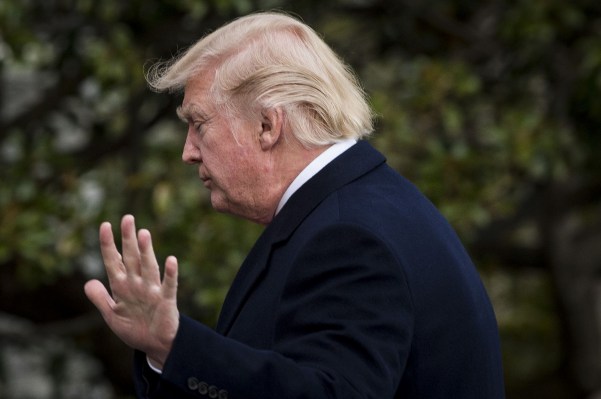President Trump this morning randomly addressed a recent court ruling on net neutrality, calling it a “great win” that will “lead to many big things including 5G.” Perhaps he didn’t read the ruling closely, because it in fact is an enormous blow to the FCC and the “unhinged” logic on which it based the rollback of net neutrality.
You can find a full analysis of the decision here, but Trump’s tweet ought to be addressed directly, because it is wrong in several ways.
First and most important, the FCC didn’t win this. Certainly it was a partial victory in that it wasn’t struck down and many of Mozilla et al.’s objections were dismissed (sometimes almost flippantly). But not only were several issues, such as the legal abandonment of the Lifeline program, sent back to the FCC to be addressed, the entire Restoring Internet Freedom rule had its teeth pulled by the removal of the agency’s ability to preempt state laws.
The FCC had relied on specious arguments throughout, but one of the least convincing was that it had the authority to overrule states that had established their own, stronger net neutrality rules, as California is doing. This attempt to “create preemption authority out of thin air” was completely unjustified by any law or precedent, the court ruled, and that entire section of the new rules was struck down.
That means states can set their own rules and the FCC can’t interfere — and if a few states set strong rules, companies will likely choose to simply comply with those nationally rather than create a collection of state-specific ones. This is a huge setback for the FCC, essentially removing its authority to enforce its own rules. So are they really even rules?
Second, this wasn’t “the” big court case on net neutrality. This was a major one to be sure, but it is only the latest, and certainly not the last, in a long line of cases that have been kicking this issue back and forth for decades. In fact, circuit judge Patricia Millett, in her statement accompanying the decision, essentially said they expect it to eventually rise to the Supreme Court.
Third, it isn’t a “great win for the future and speed of the internet.” Very little will change for end users, just as very little changed in 2015 when net neutrality was established, or three years later, when it was abolished. The broadband industry has generally not let these swings of the pendulum affect its plans and investments, many of which have been in the works for years. And really, outside of some very specific circumstances like throttling, net neutrality (or the lack thereof) doesn’t affect the speed of the internet, either directly or by interfering with broadband providers.
Last, it won’t lead to 5G. 5G is a new global mobile standard that has very little to do with net neutrality and everything to do with spectrum, hardware, fiber backhaul and things like that. The deployment of 5G has been underway for years and has been almost completely unaffected by this side of the regulatory landscape.
The net neutrality battle is far from over, but this court case made things extremely difficult for the FCC. Without the threat of being overruled, states are free to make their own net neutrality rules as strong or stronger than 2015’s. So in a way, the president was right. This is a great win and will lead to many great things — just not the way he thought.
